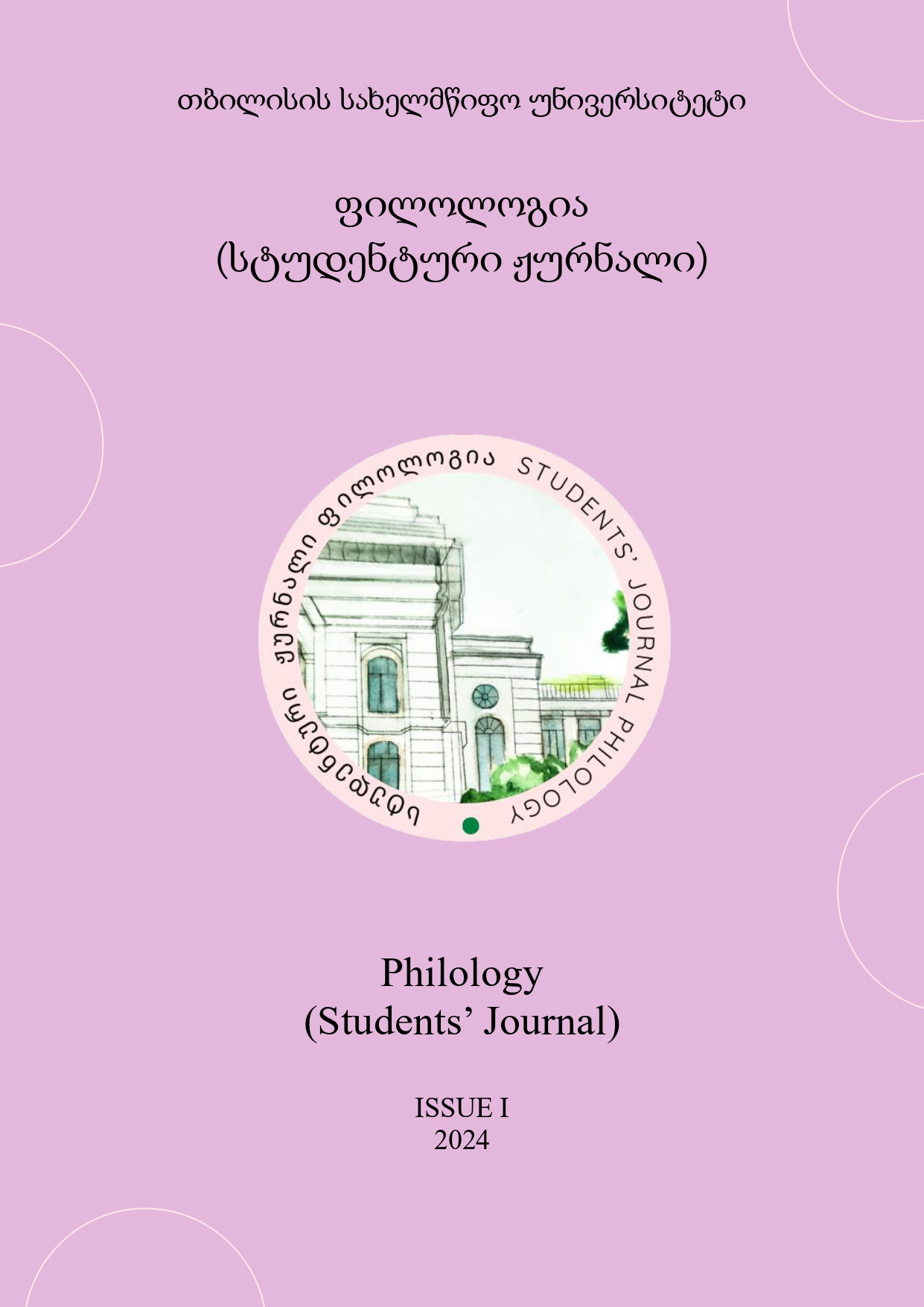ლექსიკური ერთეულის Smart ევოლუცია ინგლისურ ენაში: მტკივნეულიდან ჭკვიანამდე
საკვანძო სიტყვები:
ჭკვიანი, კონოტაცია, სემანტიკა, ლინგვისტური ფაქტორები, მეტაფორული ხიდი, ნეოლოგიზმიანოტაცია
The evolution of the word "smart" in the English language reflects a fascinating journey from its original meaning of "painful" to its modern connotation of intelligence and sophistication. This article explores how semantic changes occur within language, tracing the transformation of "smart" through metaphorical extension and cultural shifts. Beginning with its roots in Old English referring to physical pain, the word expanded to encompass mental and emotional suffering in Middle English.
Over time, a metaphoric connection was established between physical pain and intellectual sharpness, leading to its association with mental acuity and cleverness. Cultural changes emphasizing intellectual skills further reinforced this transition, leading to its modern usage denoting intelligence and wit. The article also examines the incorporation of "smart" into technology-related terms like "smartphone," illustrating its continued relevance and adaptability in contemporary contexts. Through linguistic analysis, the paper highlights how language evolves in response to social, cultural and technological changes, underlining the dynamic nature of language and its profound impact on human development
წყაროები
Gustaf Stern, Meaning and Change of Meaning: With Special Reference to the English Language, (August 24, 2018), Forgotten Books
Hans-Jörg Schmid, New Words in the Mind: Concept-formation and Entrenchment of Neologisms (2008), Anglia (Journal of English Philology)
Sonila Daiu, Semantic Changes – the Factors and Consequences of the Word Meaning Process, (2015) , European Journal of Language and Literature Studies
Peter Glaser, (2020.09.10) Really, everything smart? https://www.tsystems.com/cn/en/insights/newsroom/news/what-does-smart-mean-history-of-abuzzword-612026
კემბრიჯის ონლაინ ლექსიკონი:
https://dictionary.cambridge.org/dictionary/english/smart
ონლაინ ეტიმოლოგიური ლექსიკონი: https://www.etymonline.com/word/smart
ოქსფორდის ონლაინ ლექსიკონი:
https://www.oxfordlearnersdictionaries.com/definition/english/smart_1
ქართული ენის განმარტებითი ლექსიკონი: http://www.ena.ge/explanatory-online


